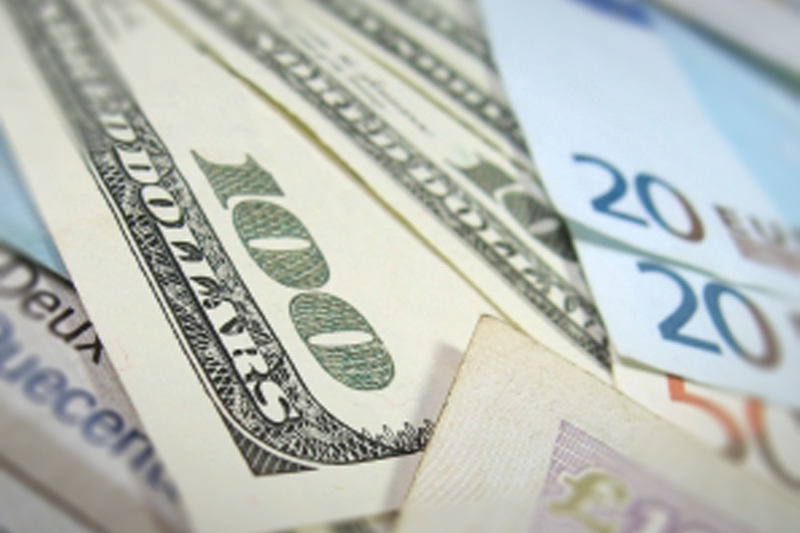Investing.com -- The euro continued its recent hot streak against the U.S. dollar, moving above 1.10 as weak data on U.S. durable goods strengthened the case for delaying a potential interest rate hike.
EUR/USD rose steadily in U.S. morning trading to reach a two-week high at 1.103 before settling at 1.0974. The pair gained 0.44% or .0048 as it continues its steady rebound from early last week when parity appeared inevitable.
On Wednesday, the U.S. Department of Commerce said in a monthly report that durable or long-lasting goods orders dipped by a seasonally adjusted 1.4% for the month of February. Orders for January were also revised downward to a 0.1% decline for the month. As a result, investment spending by U.S. businesses has dropped for six straight months.
The soft data weighed on the dollar, as the U.S. Dollar Index fell slightly by 0.30% to 97.14 in U.S. afternoon trading. The index measures the strength of the greenback against a basket of six other major currencies.
The lack of strength in the dollar was reflected in Wednesday's auction of U.S. 5-Year Treasuries, where weak demand caused yields to fall to 1.375%. The bid to cover ratio also fell to 2.35, its lowest ratio since July, 2009. In recent months, the average bid to cover ratio has been around 2.63.
While yields on U.S. 10-Year Treasuries rose 0.049 or 2.59% on Wednesday, they still remained under 2% at 1.927. Yields on German 10-Year bunds fell 0.02 to 0.22%.
In London, meanwhile, Chicago Federal Reserve Bank president Charles Evans said until the Fed was reasonably confident that inflation was moving back near 2%, he saw no reason to hurry and raise interest rates. Speaking at the Official Monetary and Financial Institutions Forum, Evans urged the Fed to delay an interest rate hike until the middle of next year. Evans has been a long proponent of keeping interest rates low to avoid disinflation.
Elsewhere, Greece failed in its bid to receive a short-term cash payment from its euro zone creditors providing another blow to the cash-strapped nation, which is becoming increasingly desperate to avoid bankruptcy. Greek leaders had made a bid to receive a €1.2 billion payment from the European Financial Stability Facility, after claiming it overpaid on a transfer to the fund earlier in March.
"We see no reason to release it," Germany Finance Ministry spokesman Martin Jaeger said at a news conference on Wednesday.
Greece is running out of time before its next debt payments are due. On April 8, Athens owes the International Monetary Fund more than €460 mil on a loan from its 2010 bailout. Five days later, Greece must make a €1.4 billion payment to holders of its short-term treasury bills.
